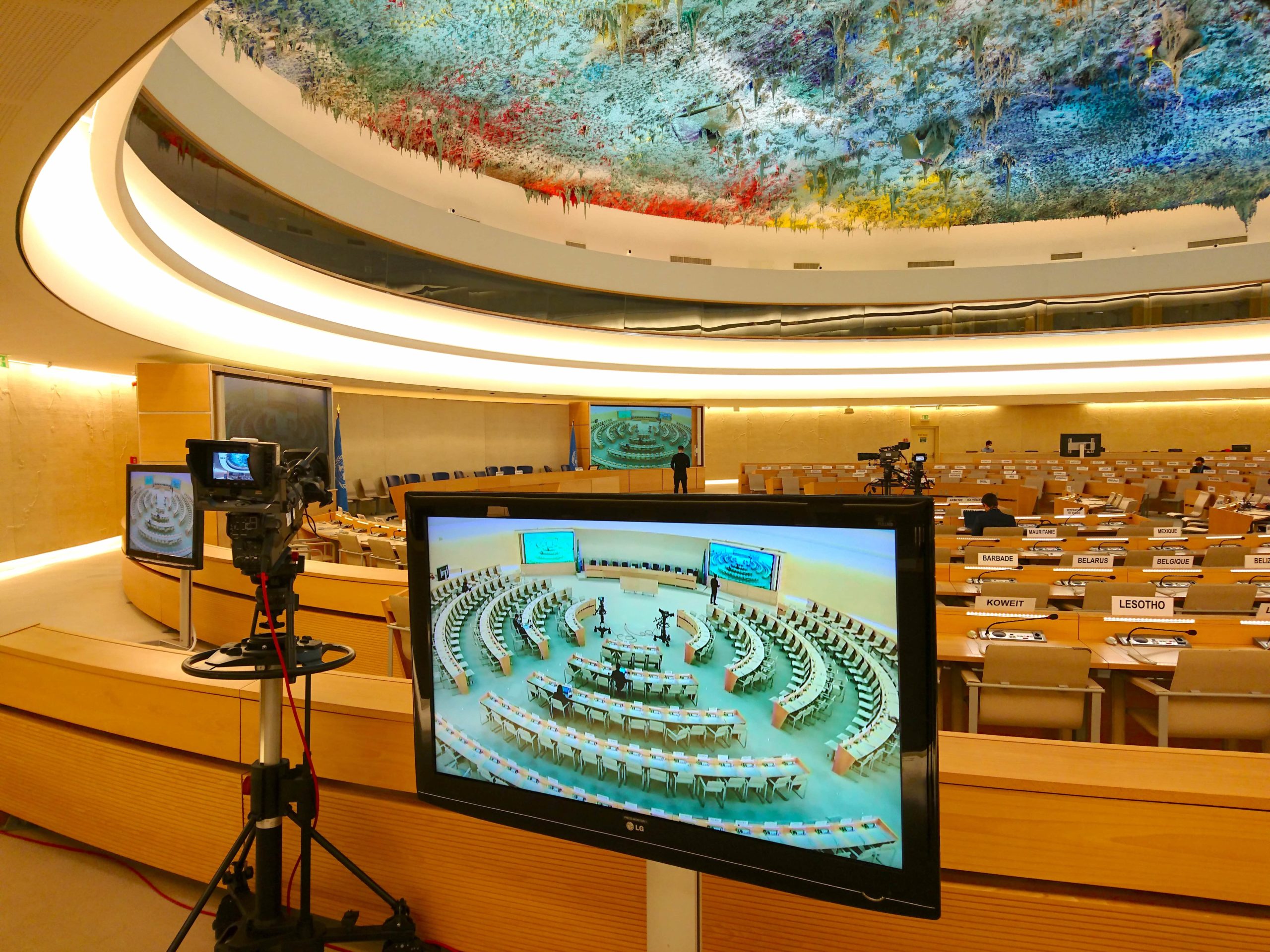Oral statements delivered during the 59th session of the UN Human Rights Council (16 June-9 July 2025)
Mr. President, Mr. Special Rapporteur,
We thank you for your report – once again, it is comprehensive and relevant. Eritrea remains one of the most closed countries on the African continent. Civic space is virtually non-existent and impunity for violations is total.
Ahead of this session, over 30 NGOs called on the Council to adopt a strong resolution that extends the Special Rapporteur’s mandate, moving away from a “procedural” approach and clearly spelling out and condemning the grave human rights violations committed by Eritrean authorities. As regional tensions are mounting and violations are ongoing, maintaining scrutiny of the country’s human rights situation is critical.
Mr. President,
Since the 2016 findings of the Commission of Inquiry (COI) on Eritrea, which detailed a litany of violations, some of which may amount to crimes against humanity, the Council has mandated no adequate follow-up. Yet, Eritrea’s human rights situation has not fundamentally changed. Throughout the country’s Council membership (2019-2024), Eritrean authorities refused to engage in a serious dialogue with the international community (and with African mechanisms) or to cooperate with the Council’s mechanisms.
Dr. Babiker,
With this and the absence of improvements in mind, how can the Council address Eritrea’s domestic situation and its impact abroad, including extraterritorial attacks against the diaspora?
How can the tenth anniversary of the first report of the COI be leveraged to stock-take on accountability options?
Thank you for your attention.
Link to video recording of the debate / end
Mr. President, Mr. High Commissioner,
As your annual report shows, human rights are backsliding. Around the world, states are backtracking on their commitments, challenging norms, and undermining multilateralism.
Civic space indicators can be used as objective criteria to assess human rights situations, and civic space restrictions are often early warning signs of crises. We once again raise the alarm over attacks against human rights defenders (HRDs), civil society actors and journalists across the East and Horn of Africa, DefendDefenders’ core mandate.
In Ethiopia, we continue to denounce the severe and undue restrictions human rights actors face. In recent months, against a backdrop of persecution of those calling for peace, or simply for an inclusive transitional justice process, several HRDs have gone into exile. As domestic institutions are failing the victims and survivors, the International Commission of Human Rights Experts on Ethiopia (ICHREE) was discontinued too early. This Council should now define a clear path towards a new resolution on Ethiopia.
In Tanzania, we condemn the recent arrests, detentions and deportations of former officials, including a former Chief Justice and a former Justice Minister of Kenya, and civil society members. All travelled to Tanzania to attend the court case of opposition leader Tundu Lissu, who has been charged with “treason.” Before being dumped at Tanzania’s borders, Ugandan journalist Agather Atuhaire and Kenyan activist Boniface Mwangi were held incommunicado, stripped naked, tortured, and sexually abused by security operatives – unjustifiable, criminal acts that must be investigated with a view to holding all those responsible to account.
With elections approaching, risk factors of violations are multiplying. After years of relative opening, including resumption by the government of its dialogue with the country’s vibrant civil society, it is time for UN and African human rights mechanisms to enhance their attention to Tanzania.
Tanzania is too big to fail, and East Africa cannot afford another major human rights crisis.
Thank you for your attention.
Link to video recording of the debate / end
[Statement delivered in French – Check against delivery]
Mr. President, Mr. Special Rapporteur,
We welcome your update and call on states to support the extension of your mandate at the Council’s 60th session, in September-October 2025.
International scrutiny of Burundi’s human rights situation remains vital. Multiple irregularities marred the 5 June 2025 legislative and communal elections, in which the ruling CNDD-FDD party won over 96% of votes and all National Assembly seats, as well as almost every seat in commune-level election. CNDD-FDD officials and its youth league, the Imbonerakure militia, intimidated, harassed, and threatened the population, and key opposition figures were barred from running – leading to “elections without opposition.” Prominent Burundian human rights organisations denounced these irregularities and called for new elections.
After severely restricting the democratic and civic space, the government is now accusing those who contest election results of being threats to “national peace.” Burundi has entered a long election cycle, which will culminate with the May 2027 presidential poll. If history is any guide, we fear the worst as risk factors of violations, including those highlighted in the UN’s Framework of Analysis for Atrocity Crimes, are multiplying.
All critical voices are targeted. A statement by catholic bishops, listing irregularities and lamenting the authorities’ poor management of elections, triggered accusations, by the government, of “destabilizing peace and security.” One catholic priest, Abbé Paul Butoyi, was arrested and briefly detained after criticising electoral operations and calling on Christians to “stay united.”
All violations of civil, political, economic, social and cultural rights, as well as the widespread impunity reported by the UN Independent Investigation on Burundi (UNIIB), the Commission of Inquiry (COI), and the Special Rapporteur (SR) are ongoing.
Mr. Zongo:
What is your assessment of the impact of ongoing violence in the Eastern DRC on the already fragile human rights situation in Burundi, and what priorities do you see for human rights monitoring in this context?
Thank you for your attention.
Link to video recording of the debate / end

